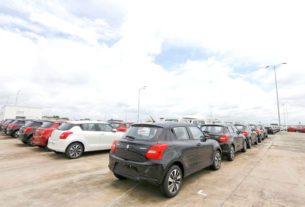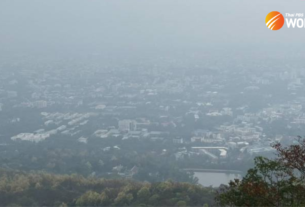Japanese property firms are expanding their development of residential projects in Thailand by setting up joint ventures with leading Thai developers for projects worth more than Bt20 billion combined this year.
The move follows demand to buy homes in the Kingdom from Japanese investors expanding their investment in the region before the Asean Economic Community comes into effect next year.
Many Japanese are also seeking property in Bangkok and the provinces for their retirement, or as second homes.
Mitsui Fudosan, a top-three property developer in Japan, established Ananda MF Asia with Ananda Development last year, with the JV having registered capital of Bt900 million.
The Japanese company holds a 49-per-cent stake in the venture, while another 49 per cent is held by Ananda Development and the rest by minor shareholders.
Ananda MF Asia has set aside an investment budget of Bt1.8 billion, half from the company’s capital and the rest borrowed from the major shareholders, in order to develop Ideo Q Rama 4, a condominium project worth Bt6.5 billion near Sam Yan MRT station.
AP (Thailand), meanwhile, is joining forces with Mitsubishi Estate Group, Japan’s largest property developer by assets, to launch three projects here worth a total of Bt7.5 billion.
Under the agreement, three 51:49 joint ventures will be set up – Asian Property (Sukhumvit), AP (Praram 9) and AP (Nonthaburi) – to develop the projects.
Representing Mitsubishi Estate Group in the JVs are MEC Thailand Investment, a company recently formed by Mitsubishi Estate Asia, and Mitsubishi Jisho Residence. Both are wholly owned subsidiaries of Mitsubishi Estate Co.
Property Perfect, another listed Thai developer, is negotiating with Japanese firms to invest in its retail business, which will open this year and next under the Metro Town brand.
Meanwhile, Mitsui Fudosan (Asia) is tying up with Singha Corp to bid for the development of a mixed-use complex on land on Rama IV owned by the Crown Property Bureau.
Property agency CB Richard Ellis (Thailand)’s managing director, Aliwasa Pattanthabutr, said that since the devastating earthquake and tsunami that hit Japan in 2011, Japanese buyers had become interested in expanding their investment in Asean, and especially in the Bangkok condominium and Thai resort-home markets.
Retail impact
Japan has also had a large impact on the Thai retail landscape from formats to brands, particularly in food and beverages, as Japanese food is one of the most popular cuisines. Within retail development, Japanese restaurants and chains are likely to outnumber Thai restaurants, she said, adding that many of the retail concepts seen today have also been inspired by Japanese brands and trends.
Since 2010, there has been a general drive by Japanese developers to diversify overseas. Japanese real-estate companies retain a strong interest in Southeast Asian markets and Thailand remains an attractive option, she said.
She sees two significant joint ventures in the past year – those between Ananda Development and Mitsui Fudosan, and AP (Thailand) and Mitsubishi Estate Group – as signs that Japanese property firms are increasingly interested in expanding their investment in Thailand.
Japanese buyers are also interested in buying a residence in Bangkok and the provinces to be their second home or retirement home.
Plus Property managing director Poomipak Julmanichoti said Japanese buyers are interested in both buying and renting condominiums in Bangkok.
The prime location for Japanese buyers is on Sukhumvit soi 24 through to soi 55, he said, adding that demand is for condos sized between 55 and 66 square metres and – if being rented – costing between Bt38,000 and Bt45,000 per month.


